
Spanish prosecutors accuse Rubiales of sexual assault and coercion for kissing a player at World Cup
Spanish state prosecutors have filed a lawsuit against Luis Rubiales for sexual assault and coercion for kissing a player on the lips without her consent after the Women’s World Cup final, the country’s prosecutors’ office said Friday. Rubiales, the now-suspended president of the Spanish soccer federation, kissed Jenni Hermoso on the lips during the awards ceremony after Spain beat England to win the title on Aug. 20 in Sydney, Australia. ___ AP soccer: https://apnews.com/hub/soccer
2023-09-08 19:58
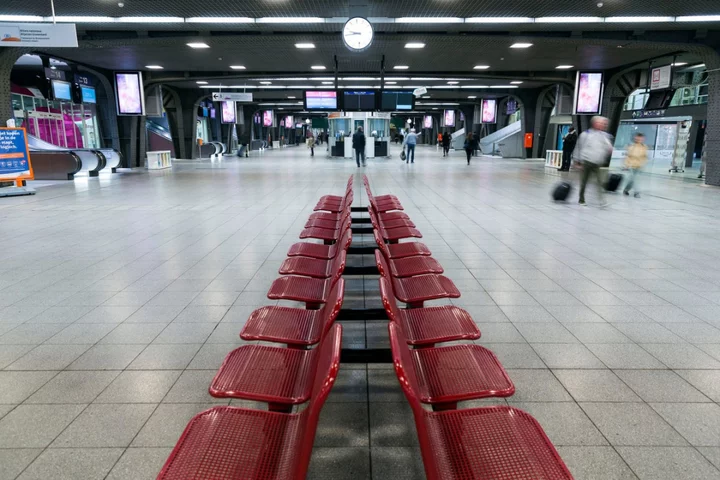
Brussels Midi Station, once a stately gateway to Belgium, has turned into a festering sore
Belgium acknowledged Thursday that its major rail gateway, the Brussels Midi Station, has become a festering sore of drug abuse, poverty and violence that is a major stain on a nation preparing to take on the presidency of the European Union. The government vowed to tackle the problem, but some critics say action is coming way too late, while others say that any cleanup operation will only push the big-city problems to other neighbourhoods. Belgium, one of the wealthiest nations in the world, with a major tourism industry, has neglected the once-stately Midi Station for decades. It has become a symbol of dysfunctional government as increasingly many of the 160,000 daily commuters and tourists no longer fully feel safe. The increasing spread of crack cocaine and open dealing and use of drugs in the neighbourhood over the past year have exacerbated an already bad situation to the point that petty theft, fights and harassment of tourists have become everyday headline news in the nation of 11.5 million. Belgium takes on the presidency of the 27-nation EU in January for six months. Governments who hold the presidency typically use the opportunity to bask in the global attention to promote their nation. Prime Minister Alexander De Croo said at a news conference Thursday that he felt he had to take action and no longer leave security at such a key time to a warren of local authorities who had proven they were not up to the task. “The challenge is one of security that we owe to everyone passing through Brussels. It is about the livable conditions in the neighbourhood, and of course, it is about the image of Brussels and the image of our nation,” he said Thursday. As an immediate measure, it was announced that a special police station will be set up at the existing station at the train station to make interventions easier. But far more fundamental issues are at stake, said historian, former politician and Brussels pundit Luckas Vander Taelen. “Nobody has done anything for years. So this problem gets always worse. And that’s what happens today — everybody seems concerned. But I wonder what is going to change here," he said. Vander Taelen blamed Belgium's Byzantine political structure of overlapping local, regional and national authorities who he said all too often blame each other instead of actually doing something in unison. “There are too many levels of power in Brussels and that paralyses everything,” he said. As criticism mounted, police organized highly publicized raids through the massive railway station, picking up and detaining several people while a cleaning team did away with much of the muck and dirt. Those are only stop-gap solutions though, said Ariane Dierickx of the l'Ilot aid group, which provides services for the homeless and needy. “It was shocking to see that all these people that have been rejected by society are being picked up by police vans while they are not criminals,” she said. “It shows how inadequate the response is.” Dierickx said it would only move the problem to other areas. Belgium's image is being soiled in other places too, De Croo's critics say, since problems at the Nord Station, another major train hub in the capital, haven't been much better. One of the major issues has been the rise of drug trafficking and its accompanying violence in Belgium. The northern port of Antwerp has turned into a main gateway for Latin American cocaine cartels into the continent and cocaine seizures there have more than doubled in the past half decade, according to customs officials. Because of that, relatively inexpensive cocaine has boomed in Brussels and crack cocaine has become a massive security issue, especially around the Midi station. Read More Carrasco dismisses criticism of human rights in Saudi Arabia after transfer to Al Shabab Swimmers enjoy sunshine and a dip at lido celebrating 100th anniversary World War I memorials in France and Belgium are vying again to become UNESCO World Heritage sites Belgium imposes a ban on shelter for single men seeking asylum to make place for families The Ukraine war, propaganda-style, is coming to Russian movie screens. Will people watch? The Ukraine war, propaganda-style, is coming to Russian movie screens. Will people watch?
2023-09-08 18:50
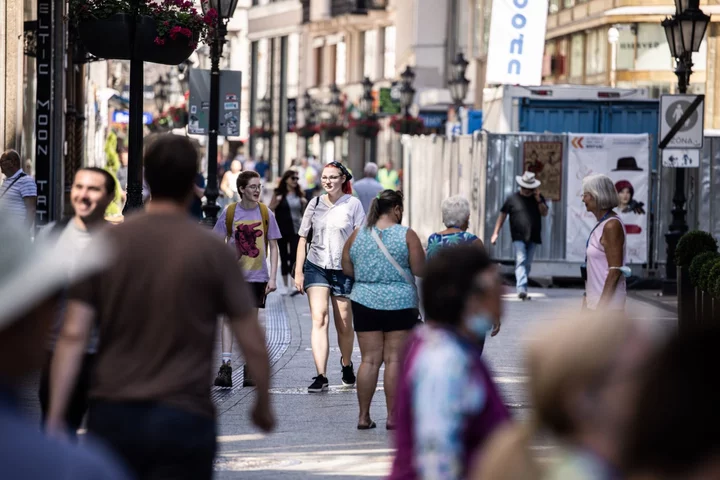
Hungarian Inflation Rate Drops to 16.4%, Lowest Level in a Year
Hungary’s inflation rate dropped to the lowest level in a year as an prolonged recession limited the room
2023-09-08 15:24
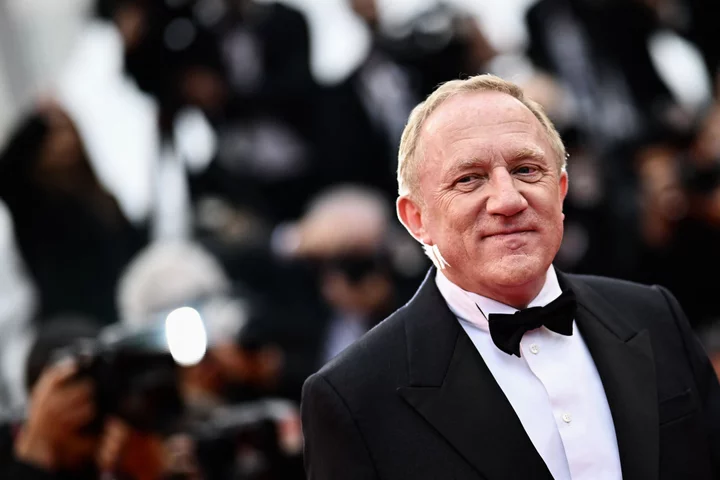
Pinault to Buy Majority Stake in Talent Agent CAA
French billionaire Francois Pinault’s holding company Artémis agreed to buy a majority stake in the Hollywood talent giant
2023-09-08 15:15
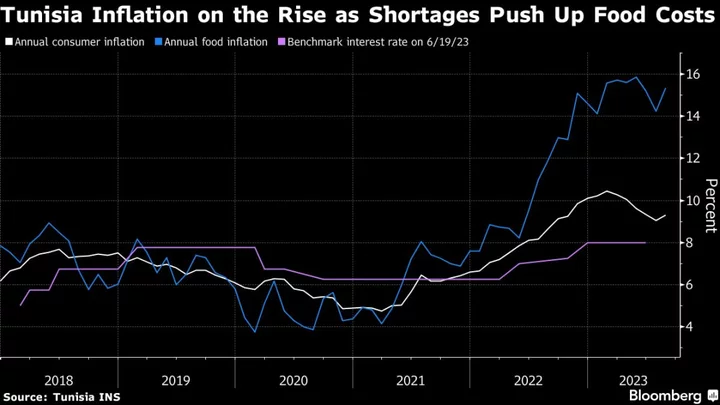
Tunisia Holds Rates With Reforms Needed for IMF Bailout in Limbo
Tunisia’s central bank kept its benchmark interest rate unchanged despite a pick-up in inflation, as political tensions hinder
2023-09-08 15:15
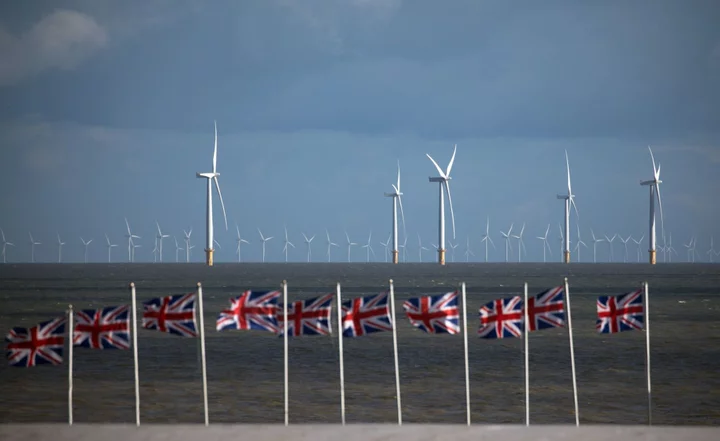
UK Fails to Clear Any Offshore Wind in Renewable Energy Auction
Offshore wind, the UK’s star renewable energy technology, failed to win any contracts in this year’s auction, creating
2023-09-08 14:57
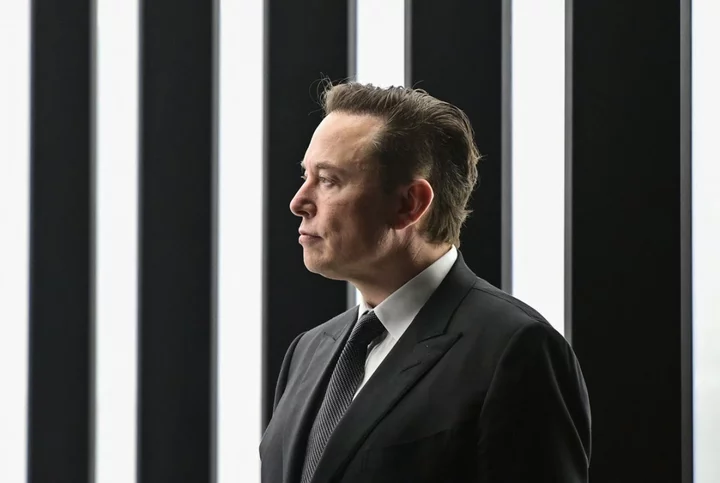
Ukraine-Russia war – live: Zelensky aide slams Elon Musk’s ‘ignorance and ego’ for thwarting Ukrainian drone strike
Volodymyr Zelensky’s top aide has slammed SpaceX CEO Elon Musk for shutting off Starlink’s satellite network over Crimea to aid Russia by thwarting a Ukrainian attack. A new biography claims Elon Musk ordered SpaceX engineers to cut off Ukrainian access to Starlink satellites near the Crimean coast to prevent a surprise drone attack on Russian warships. The billionaire told the author that he feared a strike on occupied Crimea would amount to a “mini-Pearl Harbour” and lead to a Russian nuclear retaliation, Mr Isaacson writes. “Sometimes a mistake is much more than just a mistake. By not allowing Ukrainian drones to destroy part of the Russian military fleet via Starlink interference, Elon Musk allowed this fleet to fire Kalibr missiles at Ukrainian cities,” Mykhailo Podolyak, an adviser to Mr Zelensky’s office said. “As a result, civilians, children are being killed. This is the price of a cocktail of ignorance and big ego.” Meanwhile yesterday Russia warned of “very sad consequences” after the Pentagon announced Ukraine will be armed with depleted uranium anti-tank rounds that can aid its troops in piercing Russian tanks. Read More From Challenger to Leopard: How Ukraine’s tanks compare to Russia’s A look at the uranium-based ammo the US is sending to Ukraine NATO member Romania says it has found drone pieces from Russian attacks in Ukraine on its territory Russian commander ‘used two military helicopters to transport his pet cat’
2023-09-08 13:54
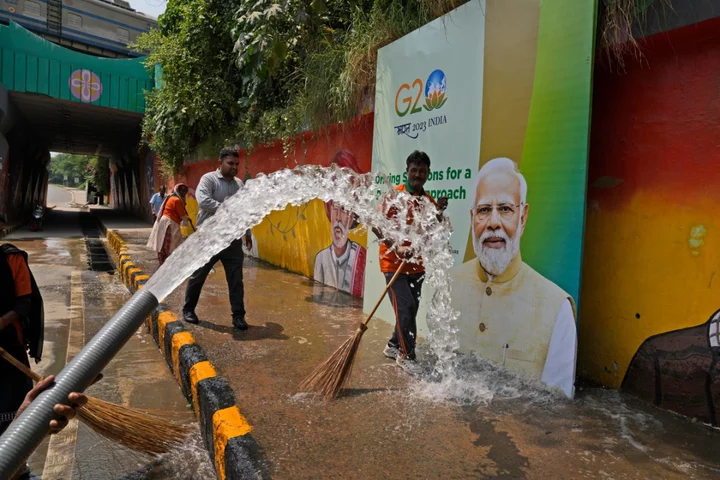
India seeking greater voice for developing world at G20, but Ukraine war may overshadow talks
It’s never been easy for the leaders of the world’s largest economies to find common ground, but the global ramifications of Russia’s war on Ukraine mean even greater challenges for meaningful agreement at the Group of 20 meeting this year. Indian Prime Minister Narendra Modi, this year’s host, has pledged not to let Ukraine overshadow the needs of the mostly developing nations in the so-called “ Global South,” but many of those issues are closely affected by the war. “New Delhi will not want to distract from the main agenda, which is to address issues of concern for the Global South,” said Nazia Hussain, an associate research fellow at Singapore's S. Rajaratnam School of International Studies. “So while there will be discussions on the emerging issues as a fallout of the war — supply chain security and decoupling, energy security, and food supply — the focus must remain on how to mitigate the fallout rather than debate the geopolitical/security aspects of the war.” Even before leaders started arriving for the summit, however, that proved a difficult task. Russia and China, which has been Moscow's most important supporter in the war against Ukraine, have blocked attempts at a final communique over objections to phrasing on Ukraine — the same wording they signed off a year ago at the G20 summit in Bali that said “most members strongly condemned the war.” The European Union, meanwhile, has said compromise language suggested by India is not strong enough for them to agree to. If leaders don’t break this deadlock, it could lead to the first time that the group’s summit has ended without a communique reflecting the countries' commitments. Ukrainian President Volodymyr Zelenskyy addressed the Bali summit by video last year, but Modi has made a point of not inviting Ukraine to participate in this year's event. Still, the White House has said that President Joe Biden's agenda includes “mitigating the economic and social impacts of Putin's war in Ukraine.” Canada’s Prime Minister Justin Trudeau has even promised Zelenskyy to keep Ukraine in the discussions, telling him in a video call that Zelenskyy posted on Instagram that “I’m disappointed that you won’t be included but as you know, we will be speaking up strongly for you.” Founded in 1999, the G20 was initially a response to global economic challenges, but since then, geopolitical tensions have introduced more politics into the discussions, complicating its ability to work effectively, said Ian Lesser, vice president of the German Marshall Fund and director of its Brussels office. The G20 encompasses the world's wealthiest countries in the Group of Seven, including the U.S., Canada, Britain, Japan, Germany and the European Union as a bloc, along with Russia, China and others. Russia's attack on Ukraine and China's growing assertiveness in the Asia-Pacific region have added friction, pitting some of the most powerful G20 countries directly against each other diplomatically, Lesser said. “Having China and Russia in the room now is a very different question than it would have been a decade ago,” he said. “It is very difficult now for any of these large-scale summits to avoid the major issues of the issues of the day, and these major issues are very polarizing — the war in Ukraine, tensions in the Indo-Pacific, even climate policy — the things that are both at the top of the global agenda but also very difficult to address.” Russian President Vladimir Putin and Chinese President Xi Jinping will not be attending the G20 themselves, instead sending lower-level officials. Russia and China did not indicate why their leaders were not attending, but neither have traveled much recently and both seem to be putting a greater emphasis on the more like-minded BRICS group of nations: Brazil, Russia, India, China and South Africa. That group agreed at its summit last month to expand to include Iran, Saudi Arabia, the United Arab Emirates, Argentina, Egypt and Ethiopia. China’s relations with India continue to be strained over ongoing border disputes, but despite the decision to send Premier Li Qiang instead of Xi, Modi and Xi did discuss the issue face-to-face at the BRICS summit and China’s Foreign Ministry said Beijing considers India-China relations “generally stable.” Along with its membership in BRICS, India has historic ties with Moscow but is also on good terms with the U.S. Modi is hoping to use his country's influence to bridge gaps between the wealthy nations that have been standing together to sanction Russia over the Ukraine war and the Global South. About half of the G20 countries are found in the Global South — depending on how one defines it — and Modi hopes to add the African Union as a bloc member. In preparation, he held a virtual “Voice of the Global South” summit in January and in working groups has targeted issues critical to developing nations, including alternative fuels like hydrogen, resource efficiency, developing a common framework for digital public infrastructure and food security. “For the Global South, India’s presidency is seen as an opportunity with immense potential to address developmental needs, particularly as Brazil and South Africa are set to take over the presidency of the G20 from India in 2024 in 2025 respectively,” Hussain said. U.S. National Security Adviser Jake Sullivan told reporters before Biden's departure that the president supported adding the African Union as a permanent member and that the president hoped this summit “will show that the world's major economies can work together even in challenging times.” The U.S. will also focus on many of Modi's priorities, including reforming multilateral development banks, especially the World Bank and International Monetary Fund, to help developing countries, Sullivan said. Biden will also call for “meaningful debt relief” for low- and middle-income countries, and seek to make progress on other priorities including climate and health issues. Without Xi and Putin present, some have suggested it could be more difficult reach meaningful agreements, but Hussain said it may be an opportunity for Modi to focus more on India's G20 priorities. “While a yearlong presidency cannot solve all the problems of the Global South, India has managed to set the ball rolling on some of these issues, and individual G20 countries can carry forward the work,” she said. Read More The Body in the Woods | An Independent TV Original Documentary The harrowing discovery at centre of The Independent’s new documentary Biden, Modi look to continue tightening US-India relations amid shared concerns about China Zelensky aide slams Elon Musk for thwarting Ukrainian drone strike - live – live AP Week in Pictures: Global | Sept. 1-7 2023
2023-09-08 12:18
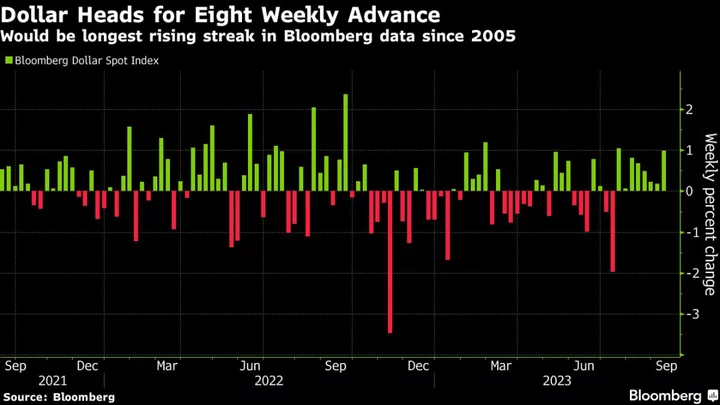
Asia Stocks to Follow Wall Street’s Apple-Led Drop: Markets Wrap
Stocks in Asia were set to follow a big tech-led drop on Wall Street amid concern over how
2023-09-08 08:15
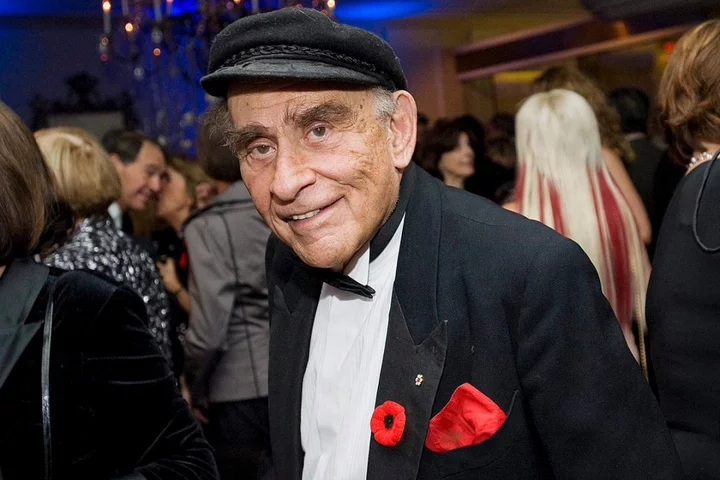
Canadian journalist and author Peter C. Newman dies at 94
Veteran Canadian journalist and author Peter C. Newman, who held a mirror up to Canada, has died. He was 94. Newman died in hospital in Belleville, Ontario, Thursday morning from complications related to a stroke he had last year and which caused him to develop Parkinson’s disease, his wife Alvy Newman said by phone. In his decades-long career, Newman served as editor-in-chief of the Toronto Star and Maclean’s magazine covering both Canadian politics and business. “It’s such a loss. It’s like a library burned down if you lose someone with that knowledge,” Alvy Newman said. “He revolutionized journalism, business, politics, history.” Often recognized by his trademark sailor’s cap, Newman also wrote two dozen books and earned the informal title of Canada’s “most cussed and discussed commentator,” said HarperCollins, one of his publishers, in an author's note. Political columnist Paul Wells, who for years was a senior writer at Maclean’s, said Newman built the publication into what it was at its peak, “an urgent, weekly news magazine with a global ambit. But more than that, Wells said, Newman created a template for Canadian political authors. "The Canadian Establishment’ books persuaded everyone — his colleagues, the book-buying public — that Canadian stories could be as important, as interesting, as riveting as stories from anywhere else,” he said. “And he sold truckloads of those books. My God.” That series of three books — the first of which was published in 1975, the last in 1998 — chronicled Canada’s recent history through the stories of its unelected power players. Newman also told his own story in his 2004 autobiography, “Here Be Dragons: Telling Tales of People, Passion and Power.” He was born in Vienna in 1929 and came to Canada in 1940 as a Jewish refugee. In his biography, Newman describes being shot at by Nazis as he waited on the beach at Biarritz, France, for the ship that would take him to freedom. “Nothing compares with being a refugee; you are robbed of context and you flail about, searching for self-definition,” he wrote. “When I ultimately arrived in Canada, what I wanted was to gain a voice. To be heard. That longing has never left me.” That, he said, is why he became a writer. The Writers’ Trust of Canada said Newman’s 1963 book “Renegade in Power: The Diefenbaker Years” about former Prime Minister John Diefenbaker had “revolutionized Canadian political reporting with its controversial ‘insiders-tell-all’ approach.” Newman was appointed to the Order of Canada in 1978 and promoted to the rank of companion in 1990, recognized as a “chronicler of our past and interpreter of our present.” Newman won some of Canada’s most illustrious literary awards, along with seven honorary doctorates, according to his HarperCollins profile. Read More Ukraine war’s heaviest fight rages in east - follow live Charity boss speaks out over ‘traumatic’ encounter with royal aide Chicago to move migrants from police stations to tent camps before winter under mayor's plan Teens killed in car by deputy in upstate New York were 15 and 17, police say Texas AG Ken Paxton's impeachment trial defense includes claims of a Republican plot to remove him
2023-09-08 06:51
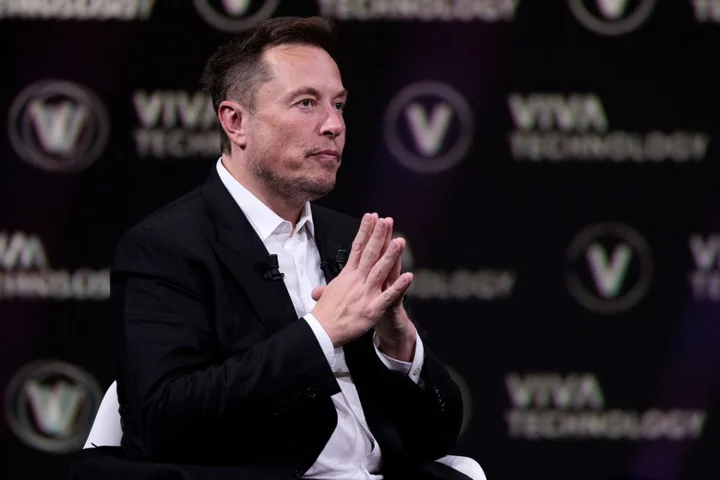
Elon Musk thwarted Ukrainian drone attack on Russian ships, book claims
Elon Musk ordered SpaceX engineers to cut off Ukrainian access to Starlink satellites near the Crimean coast to prevent a surprise drone attack on Russian warships, a new biography claims. The drones packed with explosives “lost connectivity and washed ashore harmlessly” during the thwarted attack some time last year, Walter Isaacson writes in his upcoming book Elon Musk, according to an excerpt obtained by CNN. Mr Musk told the author that he feared a strike on occupied Crimea would amount to a “mini-Pearl Harbour” and lead to a Russian nuclear retaliation, Mr Isaacson writes. The decision led Ukrainian officials to beg the world’s richest person to reinstate the satellites. The account highlights how Mr Musk unwittingly found himself thrust into the frontlines of the the 18-month-old conflict. “How am I in this war?” Mr Musk reportedly asked the writer, who has previously published biographies of Steve Jobs and Henry Kissinger. “Starlink was not meant to be involved in wars. It was so people can watch Netflix and chill and get online for school and do good peaceful things, not drone strikes.” The world’s richest man found himself thrust into the world of high-stakes diplomacy, and reportedly spoke to US national security adviser Jake Sullivan, joint chiefs chairman Mark Milley and the Russian ambassador to the US. Ukraine’s former deputy prime minister Mykhailo Fedorov also contacted Mr Musk to beg him to switch the satellites back on, according to the book. The SpaceX CEO replied that the drone attack was “going too far and inviting strategic defeat,” and declined to restore access. SpaceX has donated more than 20,000 Starlink terminals to Ukraine after Russia destroyed much of the country’s infrastructure in the beginning of the war in February 2022. Last October, Mr Musk wrote to the Pentagon to say that it could no longer afford to continue funding the service, which he estimated had cost the company hundreds of millions of dollars, CNN revealed at the time. After the story broke, Mr Musk wrote on Twitter, now known as X: “The hell with it … we’ll just keep funding Ukraine govt for free.” According to Mr Isaacson, US Defense officials had been about to hand over a $145m check before his reversal. “Elon succumbed to the bulls*** on Twitter and to the haters at the Pentagon who leaked the story,” SpaceX’s president Gwynne Shotwell reportedly told Mr Isaacson. SpaceX did not immediately respond to a request for comment by The Independent. In a promotional blurb, publishers Simon & Schuster say that Mr Isaacson shadowed Mr Musk for two years to gain an insight into every aspect of the billionaire’s world. The author “attended his meetings, walked his factories with him, and spent hours interviewing him, his family, friends, coworkers, and adversaries”. “The result is the revealing inside story, filled with amazing tales of triumphs and turmoil, that addresses the question: are the demons that drive Musk also what it takes to drive innovation and progress?” * Elon Musk by Walter Isaacson is set to be realeased by Simon & Schuster on 12 September Read More First photo emerges of Elon Musk and his baby twins with Neuralink director How Ukraine’s month-long drone assault has brought the war home for Russians Elon Musk vows to sue ADL for calling him antisemitic after he promoted antisemitic campaign on X The Body in the Woods | An Independent TV Original Documentary The harrowing discovery at centre of The Independent’s new documentary
2023-09-08 02:25
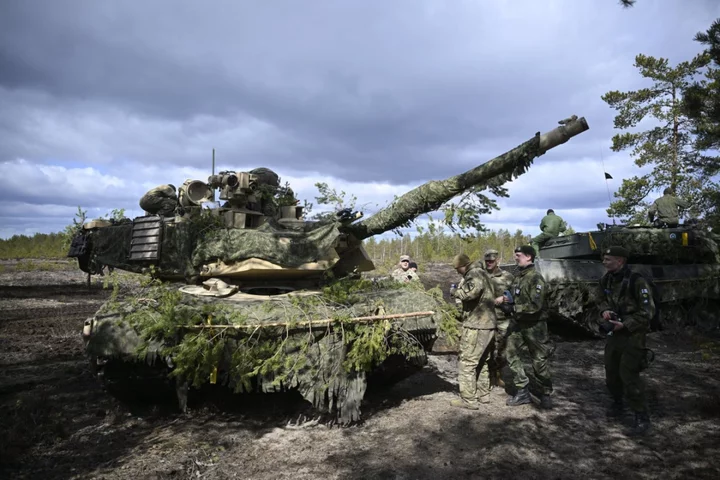
What are depleted uranium shells? The controversial armour-piercing muntions being used in Ukraine
The depleted uranium anti-tank rounds soon to be in Ukraine’s military stockpiles have kicked up a debate over its use in the continuing Russian invasion. Announced by the Pentagon in the latest military tranche on Wednesday, the controversial rounds have spread alarm among Vladimir Putin’s ministers who have warned against the escalation yet again. Britain has already promised armour-piercing rounds containing depleted uranium to Ukraine in March. Prime minister Rishi Sunak had backed drawing out the rounds from the UK military’s stockpiles ultimately “to degrade and deter – primarily – Russian aggression”. But what are these depleted uranium munitions? The 120mm anti-tank shells made of depleted uranium are self-sharpening and flammable penetrator in munitions. They are made of naturally occurring Uranium which has been stripped of mostly – not all – of its radioactive matter. So while it is not a nuclear weapon in itself, it acts as a fuel and also as a great explosive that can be used in tank armour, pressed between sheets of steel armour plate. They can be paired with top-tier tanks Western nations have already provided to Ukraine, and are particularly expected to boost the performance of 31 M1A1 Abram tanks set to be sent to the war-hit nation this fall. These rounds first emerged in the 1970s when the US army started making the armour-piercing rounds and has since used it along with tank armour to multiply the firing effect. Incredibly dense, more than lead, depleted uranium is considered a top-tier choice for projectiles. When fired, it becomes “essentially an exotic metal dart fired at an extraordinarily high speed”, RAND senior defence analyst Scott Boston said. “It’s so dense and it’s got so much momentum that it just keeps going through the armour – and it heats it up so much that it catches on fire,” Edward Geist, a nuclear expert at research organisation RAND said. The depleted uranium has also been added to the US ammunition fired by the Air Force’s A-10 close air support attack plane, known as the tank killer. Depleted uranium munitions, as well as depleted uranium-enhanced armour, have been previously used by US tanks in the 1991 Gulf War against Iraq’s T-72 tanks and again in the invasion of Iraq in 2003, as well as in Serbia and in Kosovo. Is the risk alarming? The UN nuclear watchdog has warned of the emissions of low levels of radiation from depleted uranium when handling and also warned of possible dangers of explosion. This is a bug, not a feature of the munition, says Mr Geist. Categorically, depleted uranium is not marked as a nuclear weapon. It is mainly a toxic chemical, as opposed to a radiation hazard. Particles in aerosols can be inhaled or ingested, and while most would be excreted again, some can enter the bloodstream and cause kidney damage. “High concentrations in the kidney can cause damage and, in extreme cases, renal failure,” the International Atomic Energy Agency has said. The US troops have questioned whether some of the ailments they now face were caused by inhaling or being exposed to fragments after a munition was fired or their tanks were struck, damaging uranium-enhanced armour. Experts have said that if the US military could find another material with the same density but without the radioactivity, it would likely switch. The IAEA has warned that handling of depleted uranium “should be kept to a minimum and protective apparel (gloves) should be worn” and “a public information campaign may, therefore, be required to ensure that people avoid handling the projectiles”. Initial signs of radioactivity from the Ukraine war have started trickling in. Russian foreign ministry spokesperson Maria Zakharova had recently claimed that the use of these munitions has already led to radioactive contamination. How has Russia reacted? In March, Russia was fuming after the Rishi Sunak administration announced it will give depleted uranium rounds to Ukraine, prompting them to issue nuclear threats. This time, after the US joined Britain in sending the depleted uranium shells, Moscow snapped and called the latest military aid of depleted uranium a “criminal act” beyond just escalation. “It is a reflection of Washington’s outrageous disregard for the environmental consequences of using this kind of ammunition in a combat zone. This is, in fact, a criminal act, I cannot give any other assessment,” Russian deputy foreign minister Sergei Ryabkov said. He also reiterated previous warnings by Russia about the risk of a nuclear war, because of what he called Western “pressure” on Moscow. “Now this pressure is dangerously balancing on the brink of direct armed conflict between nuclear powers,” he said. In March, Vladimir Putin had warned that Moscow would "respond accordingly, given that the collective West is starting to use weapons with a ‘nuclear component.’” Several days later, Putin said Russia’s response will see Moscow stationing tactical nuclear weapons in neighbouring Belarus, action to which effect was announced in July as Putin and the Belarusian president said they had already shipped some of the weapons. Read More The Body in the Woods | An Independent TV Original Documentary The harrowing discovery at centre of The Independent’s new documentary US sends Ukraine controversial depleted uranium weapons that can pierce tank armour UN nuclear watchdog report seen by AP says Iran slows its enrichment of near-weapons-grade uranium Kyiv drones explode near Moscow and military HQ as Russia on defensive – live
2023-09-07 22:52
